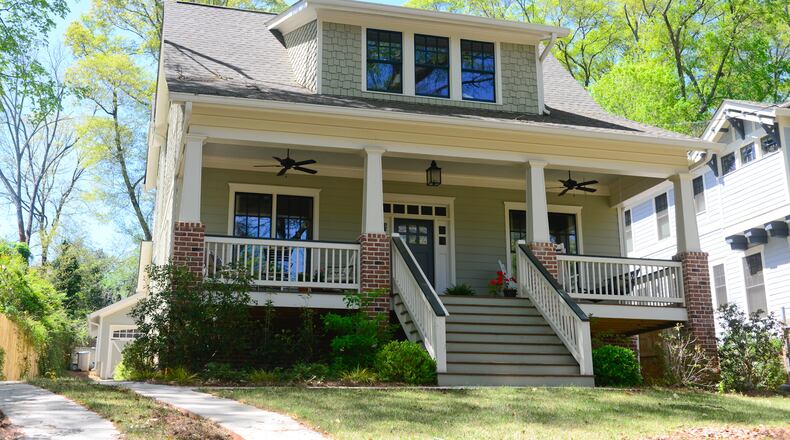DENVER — Home price increases are likely to continue to outpace wage growth and inflation, putting greater pressure on housing affordability across the country because of a shortage of supply, forecasters said Friday at the National Association of Real Estate Editors convention.
Inventory remains near historic lows, while demand for new homes has risen for several years amid an improved job market. First-time buyers, once nearly frozen out of the market, have returned with gusto, but find themselves locked in bidding wars, said Lawrence Yun, chief economist with the National Association of Realtors.
That’s quite a reversal from the days following the financial crisis, Yun said, when the problem was a lack of buyers.
“Today we have a different problem: not enough sellers,” he said.
Home affordability — for owner-occupied and rental units — has become a challenge in many cities, including Atlanta, as housing costs eclipse wage growth.
Homebuilding is still well below levels of the early 2000s, and much of the new product is in the luxury segment. Some home owners still have negative equity, or owe more than their homes are worth, and that has kept potential would-be sellers and step-up buyers on the sidelines.
Overall, the nation’s housing market is much healthier than during the loose-lending days of the boom, Yun said, while homeowners have nearly doubled their equity in the past eight years thanks to price gains.
Metro Atlanta home prices rose 5.5 percent year-over-year in March, according to the latest report by the closely watched S&P CoreLogic Case-Shiller Indices. Atlanta area home prices are near pre-recession peaks.
Home prices locally have marched steadily, if slowly, upward since their bottom in March 2012. Investors paying in cash helped establish a pricing bottom, and sales since have been propelled by low interest rates, a rebounding economy and job growth.
But tighter lending standards and delayed purchases by would-be first buyers have been a headwind. For younger buyers, student loan debt and delays in obtaining jobs have delayed their entry into the market.
Yun said he expects to see price growth of 5 percent nationally next year, which will continue to outpace income growth.
“I think because of the housing shortage we are in for a further crunch in terms of the affordability challenge,” he said.
Frank Nothaft, chief economist at CoreLogic, said interest rates are bound to rise as the Federal Reserve tightens some of its fiscal policy. Higher interest rates also make monthly mortgage payments more expensive.
Nothaft said rates will probably approach 5 percent for a 30-year fixed rate loan by the end of 2018 or early 2019. That means, coupled with expected price increases, that buyers will get less house for the money.
Six months’ worth of supply is considered the norm, but the national average is about half that, said Nela Richardson, chief economist at real estate website and brokerage Redfin.
A family making the median area income could only afford 32 percent of homes for sale in the 30 largest U.S. metros, Richardson said, down from 44 percent of homes listed in 2012.
Those figures are lower for minority households, she said.
“There’s a lot going on that we still need to tease out but all of that points to a housing market that is rapidly changing and not serving the middle class in a way that it has historically,” she said.
MYAJC.COM: REAL JOURNALISM. REAL LOCAL IMPACT.
AJC Business reporter J. Scott Trubey keeps you updated on the latest news about economic development and commercial real estate in metro Atlanta and beyond. You'll find more on myAJC.com, including these stories:
Never miss a minute of what's happening in local business news. Subscribe to myAJC.com.
About the Author
Keep Reading
The Latest
Featured




